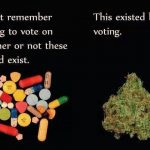Source: Associated Press
December 5, 2013
Moroccan party holds hearing for legalizing marijuana crops
RABAT: One of Morocco’s main political parties started the process of legalizing marijuana cultivation Wednesday with an informational hearing in parliament over its industrial and medical uses. The hearing held by the Party for Authenticity and Modernity is the first step in eventually introducing a draft law to legalize the widely grown cannabis plant – an economic staple in the mountainous north of the country.
According to the U.N., Morocco is one of the top producers of hashish in the world, supplying 42 percent of the world supply with nearly all of it going to Europe.
Lawmakers from the party, which was established by a close adviser to the king in 2009, say the law would aim to help the small farmers in this region who survive on the crop but live at the mercy of drug lords and police attempts to eradicate it.
“We are not seeking to legalize the production of drugs, but to search for possible medical and industrial uses of this plant and create an alternative economy in the region,” said Milouda Hazib, head of the party’s parliamentary delegation. She estimated that a million Moroccans, out of a population of 32 million, make their living from its cultivation.
During the discussions, participants talked about a law to control the acreage under cultivation and perhaps a national agency to buy up the crop and then sell it to various industries.
Morocco’s Rif Mountains are one of the most impoverished and underdeveloped parts of the country and its poor soil supports few crops aside from the hardy cannabis plant. Efforts over the years to provide alternatives failed.
Mehdi Bensaid, a legislator with the party, said the hearing, which included testimony on the Swiss experiences in using cannabis for medical and industrial purposes, was to search for a new policy for this region other than just periodically burning the crops and arresting farmers.
“Security policies aren’t solving the problem because it’s an economic and social issue so PAM is trying to find a credible alternative,” he said. “We think this crop can become an important economic resource for Morocco and the citizens of this region.”
He said the next step would be to enlist other political parties as sponsors and introduce a draft law next year.
Marijuana was always grown in this region, known for its rebellions against colonial authority and the central government. Cultivation exploded in the 1960s with rise in demand from Europe.
The United Nations Office on Drugs and Crime estimated that 134,000 hectares were under cultivation in 2003. The Moroccan government said that number was cut to just 47,000 by 2010 but many experts believe the number is artificially low.
Morocco is a signatory to the 1961 drug control treaty and would face sanctions if it legalized drugs for recreational use, however the treaty does provide exceptions for legal and industrial applications.
While lawmakers from several different parties, including the moderate Islamist party running the government, have expressed support for some sort of legalization, the law is likely to face severe hurdles in parliament.




 Creative Commons Attribution
Creative Commons Attribution